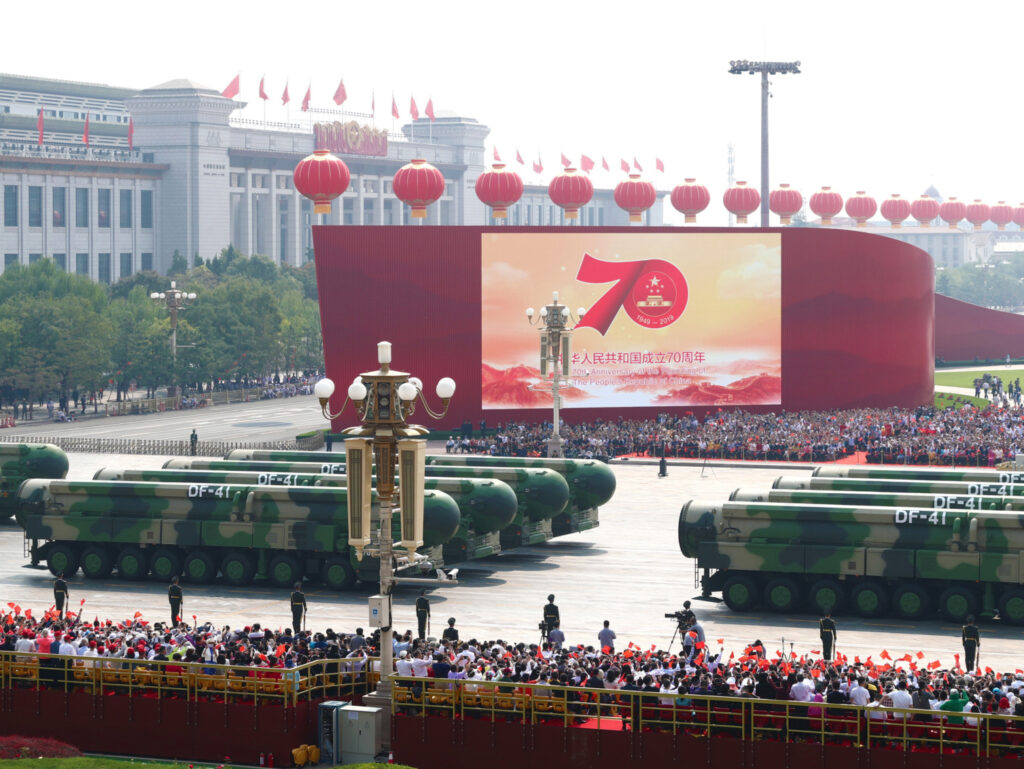Russia’s state-controlled Sputnik News reported on Wednesday that TVEL, a subsidiary of Russia’s state atomic energy corporation Rosatom, will supply two Chinese nuclear reactors with highly enriched uranium fuel for the next three years.
International outlets have reported on at least three railroad shipments of fuel to the two Chinese reactors in Fujian province, but Sputnik said the fuel contained much more highly concentrated uranium than previously reported – indeed, much more than required by reactors of the Fujian design.
This prompted suspicions Russia is secretly helping China develop its nuclear arsenal, a danger highlighted in a March letter from House Republican leaders to the Biden administration.
“Russia’s state-owned nuclear energy corporation, Rosatom, is helping the People’s Republic of China (PRC) acquire enough weapons grade plutonium to fuel its strategic nuclear breakout,” the letter from House Armed Services Committee chairman Mike Rogers (R-AL) and House Foreign Affairs Committee Chairman Michael McCaul (R-TX) said.

BEIJING, Oct. 1, 2019 — A formation of Dongfeng-41 intercontinental strategic nuclear missiles takes part in a military parade celebrating the 70th anniversary of the founding of the People’s Republic of China in Beijing, Oct. 1, 2019. (Xinhua/Lan Hongguang via Getty Images)
“Rosatom helps fuel Putin’s war efforts in Ukraine,” the letter continued. “We call on the Administration to view this cooperation for what it is, a direct threat to U.S. security and more evidence that Russia and China are working in tandem against the United States.”
Rogers and McCaul warned that Russian President Vladimir Putin uses the proceeds from nuclear sales to China to “fund his war machine and keep his favorite weapons programs on schedules.”
“In short, every dollar and euro that Rosatom brings in directly finances the death and destruction we see in Ukraine, China’s nuclear weapon expansion, and is a direct threat to the American way of life,” they wrote.

A picture taken on June 28, 2016, shows the logo of Russian atomic energy agency Rosatom during the World Nuclear Exhibition in Le Bourget, near Paris. (ERIC PIERMONT/AFP/Getty Images)
One of the U.S. concerns is that both of China’s plants use fast-neutron breeder designs, which means they can convert uranium-238 fuel into weapons-grade plutonium-239. Although China insists it is purely interested in peaceful electric power generation, skeptical observers note there is little reason to use expensive, finicky breeder reactors unless creating nuclear weapon material. Most other countries that built breeder reactors have long since abandoned them.
“It’s very troubling to see Russia and China co-operating on this. They may have talking points around it, but there’s no getting around the fact that breeder reactors are plutonium, and plutonium is for weapons,” Assistant Secretary of Defense for Space Policy John F. Plumb told the House Armed Services Subcommittee on Strategic Forces in March.
Plumb said increased Chinese production of weapons-grade fuel would “match our concerns about China’s increased expansion of its nuclear forces as well, because you need more plutonium for more weapons.”
The Chinese nuclear expansion Plumb referred to has already included construction of over 300 new missile silos that Beijing purportedly does not have warheads for. The Pentagon estimated in November that China’s arsenal could grow from 350 nuclear warheads to over 1,500 by 2035.


